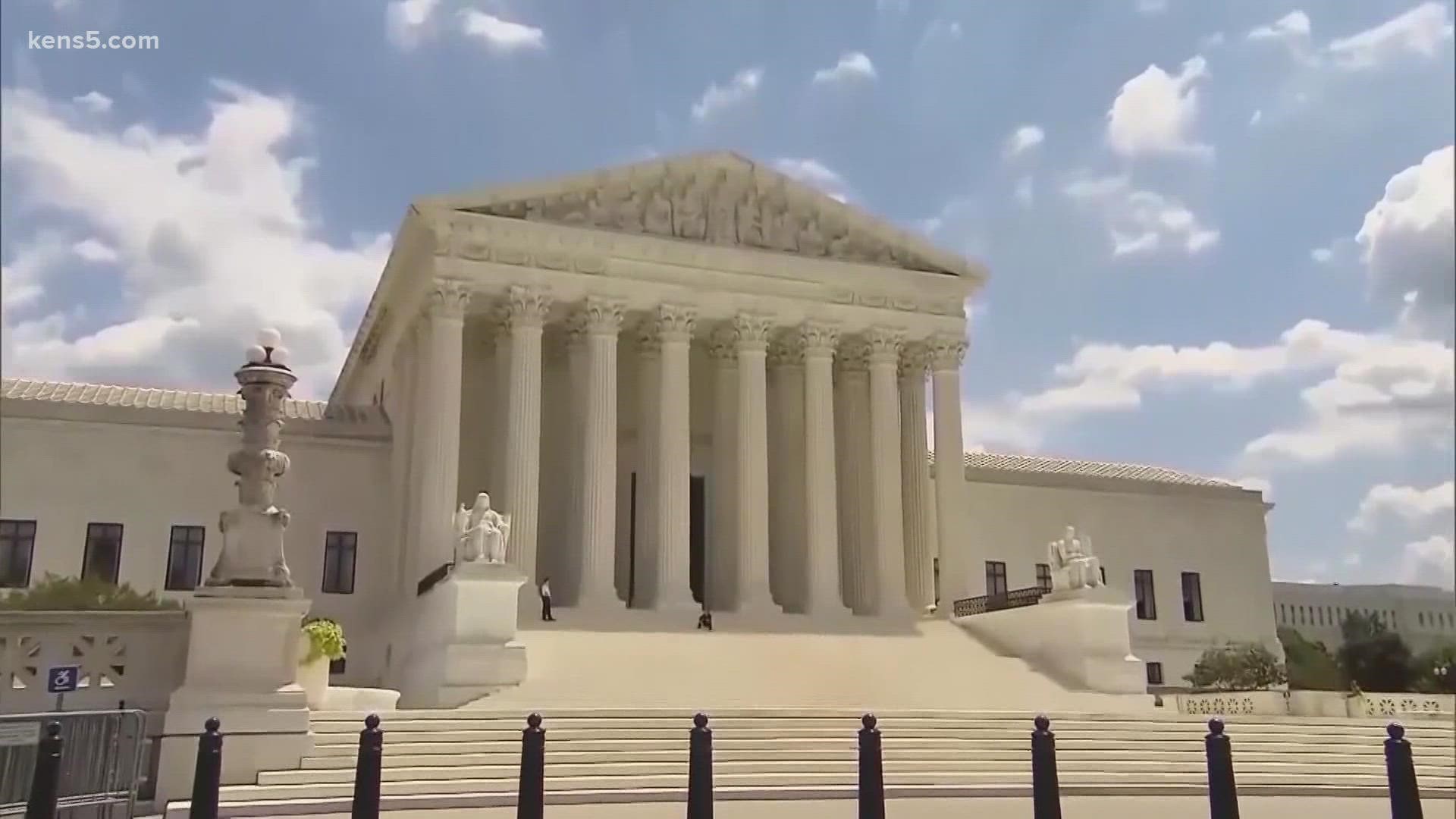TEXAS, USA — All abortions would automatically become illegal in Texas if the U.S. Supreme Court overturns Roe v. Wade.
Justices could strike down the decades-old precedent when they decide whether Mississippi can bar abortions after 15 weeks.
Under a so-called 'trigger ban' state lawmakers approved in June, the change would take effect just 30 days after the court issues its decision.
If the high court chooses to uphold the Mississippi law but protect the constitutional right to abortion, abortions would likewise become illegal in Texas after 15 weeks.
Justices could also maintain status quo and strike down the Mississippi law in its entirety. Lawyers made their cases before the court Wednesday.
"This was always going to be the major test - whether the new conservative, 6-3 majority could find some balance between Roe v. Wade and abortion being entirely illegal," said Mark P. Jones, a political scientist at Rice.
A number of states have enacted similar trigger bans. Texas hurried to approve its version after President Donald Trump solidified the conservative majority on the court by appointing justice Amy Coney Barrett.
Justice Brett Kavanaugh encouraged anti-abortion advocates with his questioning Wednesday, prompting experts to predict the court will ignore judicial precedent and uphold the Mississippi ban.
Jones says he thinks the court will uphold the 15 week ban but protect the right to abortion as a sort of compromise.
"Let's not kid ourselves, the Supreme Court does care about public opinion," he said, noting that Americans generally prefer abortion limitations to outright bans. "A lot of its legitimacy rests on having public support."
UTSA political scientist Jon Taylor says he agrees.
"Nobody likes the idea of abortion," he said. "But people are also like, 'Yeah, but there are times and places (when it's appropriate).' The majority of Texans fall in that particular camp."
Roe v. Wade established constitutional right to an abortion until the fetus is old enough to survive on its own outside the womb.
Initially, justices estimated viability would be possible at around 28 weeks. In 1992's Planned Parenthood v. Casey case, the court amended its estimate to roughly 24 weeks.
Mississippi lawmakers used a "made up" number, Jones says, to challenge the precedent. There is no significant medical milestone at 15 weeks into a pregnancy.
Jones contends the time frame represents a sort of halfway point between Casey's estimate and proposed fetal heartbeat bans, which would bar abortions at around six weeks.
"If the Supreme Court rules that Mississippi's law at 15 weeks is constitutional, then someone is going to try to enact a 14 week law. Then a 13 week law," he said. "Eventually, the Supreme Court will have to decide what the bare minimum is."
Justices are still deciding whether to uphold Texas's abortion ban, though their decision will have little to do with abortion itself.
The high court will instead decide whether states can use private citizens to enforce laws and circumvent judicial oversight.
Under the Texas law that took effect Sept. 1, private citizens can sue abortion clinics or doctors that terminate pregnancies after a fetal heartbeat is detectable.
Fetal heartbeats are generally present around six weeks gestation, before most women are aware they're carrying a child.
"Since (the fetal heartbeat ban passed), we've seen a drop of anywhere between 50-80 percent in abortions in the state of Texas and an increase in the number of out-of-state appointments for abortions," Taylor said.
The law allows for civil enforcement, not criminal enforcement. That means violators would be sued, not jailed.
The proposal's architects contend, then, that legal action intended to stop the ban from taking place cannot be directed at the state of Texas.
Texas Republicans wrote the bill to circumvent courts that struck down prior attempts to pass a fetal heartbeat ban.
It's not clear when the court could rule on either law.

